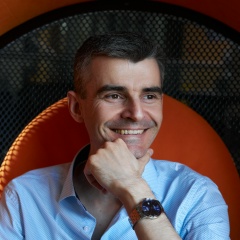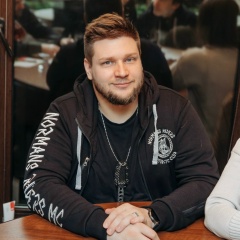Я часто делаю сессии разбора предпринимательских проектов и, есть ощущение, что относительно неплохо.
Основная моя роль на таких мероприятиях – задать правильные вопросы и предложить конкретные инструменты. И, если разброс инструментов достаточно велик, то вопросы почти всегда оказываются почти одинаковыми.
Есть 10-15 основных выкристаллизовавшихся вопросов (или серий вопросов) и, иногда мне кажется, что моя задача заключается лишь в том, чтобы выбрать подходящий вопрос и задать его правильным тоном). Остальное уже дело техники.
Вот некоторые их этих вопросов / серий вопросов:
• Зачем ты сейчас нам это рассказал?
• Что ты строишь? Какова твоя цель через 5-10 лет?
• Каковы твои ключевые гипотезы и как ты будешь их проверять?
• Про что ты, в первую очередь, что лежит в основе твоего бизнеса? В чём ты хочешь стать №1?
• Зачем в тебя инвестировать? Что я от этого получу? И сколько тебе нужно?
• Какие допущения лежат в основе твоих финансовых расчётов?
• Кто у вас отвечает за бизнес?
• Зачем ты работаешь над этим проектом? Допустим, ты этого добился, что это дало? Допустим, ты этого добился, что это дало? Допустим, ты этого добился, что это дало? Это лучший способ получить это?
• А что ты продаёшь-то? И почему это лучшее решение для клиентов?
• Что обеспечивает твоё конкурентное преимущество?
• Сколько нужно клиентов и откуда они возьмутся?
• Где главный драйвер роста для проекта?
• Как достичь намеченного? Как достичь намеченного? Как достичь намеченного? (самые интересные ответы бывают после третьего повторения)
А знаете в чём цель задавания этих вопросов и моей реакции на ответы? Чтобы человек прямо сейчас дал ответ и изменил что-то в своём отношении к проекту и своей роли в нём? Не совсем. Раньше я так думал, но сейчас для меня это стало уже, скорее, обязанностью, как тренера. Основную цель я сейчас вижу в том, чтобы человек продолжил задавать себе подобные вопросы и стал сам искать и оценивать ответы на них. Только тогда это будет не одноразовая польза, а реальный вклад в повышение вероятности успеха проекта.
Основная моя роль на таких мероприятиях – задать правильные вопросы и предложить конкретные инструменты. И, если разброс инструментов достаточно велик, то вопросы почти всегда оказываются почти одинаковыми.
Есть 10-15 основных выкристаллизовавшихся вопросов (или серий вопросов) и, иногда мне кажется, что моя задача заключается лишь в том, чтобы выбрать подходящий вопрос и задать его правильным тоном). Остальное уже дело техники.
Вот некоторые их этих вопросов / серий вопросов:
• Зачем ты сейчас нам это рассказал?
• Что ты строишь? Какова твоя цель через 5-10 лет?
• Каковы твои ключевые гипотезы и как ты будешь их проверять?
• Про что ты, в первую очередь, что лежит в основе твоего бизнеса? В чём ты хочешь стать №1?
• Зачем в тебя инвестировать? Что я от этого получу? И сколько тебе нужно?
• Какие допущения лежат в основе твоих финансовых расчётов?
• Кто у вас отвечает за бизнес?
• Зачем ты работаешь над этим проектом? Допустим, ты этого добился, что это дало? Допустим, ты этого добился, что это дало? Допустим, ты этого добился, что это дало? Это лучший способ получить это?
• А что ты продаёшь-то? И почему это лучшее решение для клиентов?
• Что обеспечивает твоё конкурентное преимущество?
• Сколько нужно клиентов и откуда они возьмутся?
• Где главный драйвер роста для проекта?
• Как достичь намеченного? Как достичь намеченного? Как достичь намеченного? (самые интересные ответы бывают после третьего повторения)
А знаете в чём цель задавания этих вопросов и моей реакции на ответы? Чтобы человек прямо сейчас дал ответ и изменил что-то в своём отношении к проекту и своей роли в нём? Не совсем. Раньше я так думал, но сейчас для меня это стало уже, скорее, обязанностью, как тренера. Основную цель я сейчас вижу в том, чтобы человек продолжил задавать себе подобные вопросы и стал сам искать и оценивать ответы на них. Только тогда это будет не одноразовая польза, а реальный вклад в повышение вероятности успеха проекта.
I often do sessions on analyzing entrepreneurial projects and there is a feeling that it is relatively good.
My main role at such events is to ask the right questions and suggest specific tools. And, if the range of tools is large enough, then the questions almost always turn out to be almost the same.
There are 10-15 main crystallized questions (or series of questions), and sometimes it seems to me that my task is only to choose a suitable question and ask it in the right tone). The rest is a matter of technology.
Here are some of these questions / series of questions:
• Why did you tell us this now?
• What are you building? What is your goal in 5-10 years?
• What are your key hypotheses and how will you test them?
• What are you talking about, first of all, what is the basis of your business? What do you want to become number 1 in?
• Why invest in you? What will I get from this? And how much do you need?
• What are the assumptions that underlie your financial calculations?
• Who is responsible for your business?
• Why are you working on this project? Suppose you got it, what did it give? Suppose you got it, what did it give? Suppose you got it, what did it give? Is this the best way to get this?
• What are you selling? And why is this the best solution for customers?
• What provides your competitive advantage?
• How many customers do you need and where will they come from?
• Where is the main growth driver for the project?
• How to achieve the intended? How to achieve the intended? How to achieve the intended? (the most interesting answers come after the third repetition)
Do you know what the purpose of asking these questions and my reaction to the answers is? So that a person right now gives an answer and changes something in his attitude to the project and his role in it? Not really. I used to think so, but now for me it has become, rather, a duty, as a coach. The main goal I see now is that people continue to ask themselves such questions and begin to search and evaluate answers to them. Only then it will not be a one-time benefit, but a real contribution to increasing the likelihood of success of the project.
My main role at such events is to ask the right questions and suggest specific tools. And, if the range of tools is large enough, then the questions almost always turn out to be almost the same.
There are 10-15 main crystallized questions (or series of questions), and sometimes it seems to me that my task is only to choose a suitable question and ask it in the right tone). The rest is a matter of technology.
Here are some of these questions / series of questions:
• Why did you tell us this now?
• What are you building? What is your goal in 5-10 years?
• What are your key hypotheses and how will you test them?
• What are you talking about, first of all, what is the basis of your business? What do you want to become number 1 in?
• Why invest in you? What will I get from this? And how much do you need?
• What are the assumptions that underlie your financial calculations?
• Who is responsible for your business?
• Why are you working on this project? Suppose you got it, what did it give? Suppose you got it, what did it give? Suppose you got it, what did it give? Is this the best way to get this?
• What are you selling? And why is this the best solution for customers?
• What provides your competitive advantage?
• How many customers do you need and where will they come from?
• Where is the main growth driver for the project?
• How to achieve the intended? How to achieve the intended? How to achieve the intended? (the most interesting answers come after the third repetition)
Do you know what the purpose of asking these questions and my reaction to the answers is? So that a person right now gives an answer and changes something in his attitude to the project and his role in it? Not really. I used to think so, but now for me it has become, rather, a duty, as a coach. The main goal I see now is that people continue to ask themselves such questions and begin to search and evaluate answers to them. Only then it will not be a one-time benefit, but a real contribution to increasing the likelihood of success of the project.

У записи 23 лайков,
7 репостов.
7 репостов.
Эту запись оставил(а) на своей стене Вячеслав Макович










































